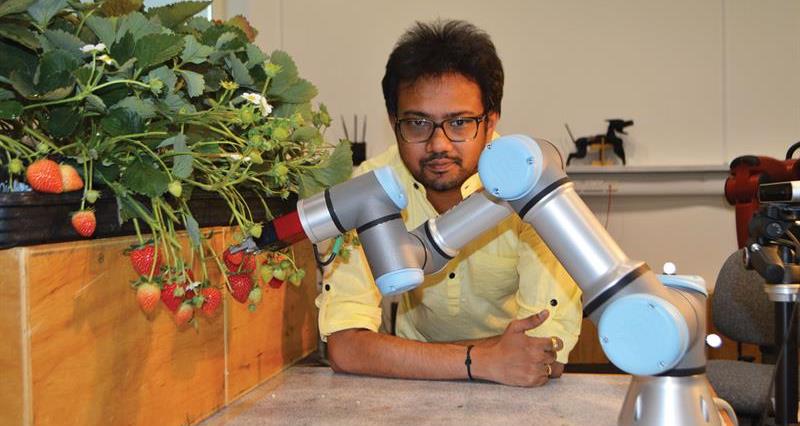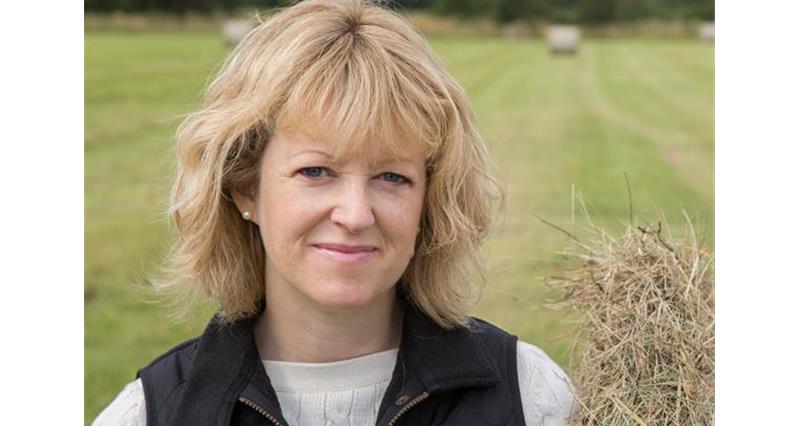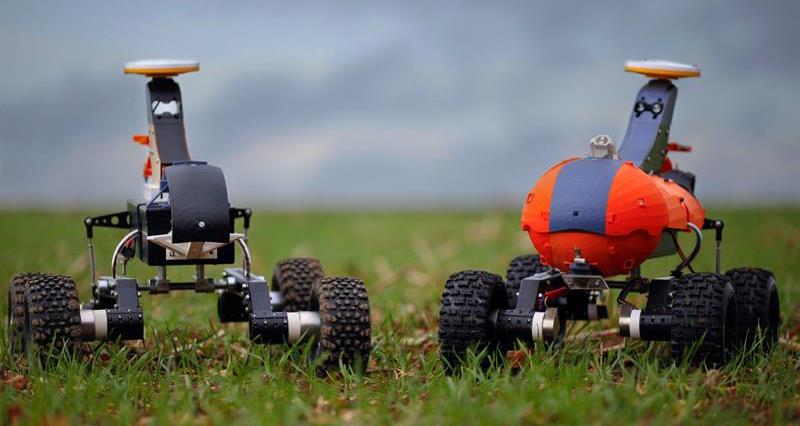Robots, vertical farms and virtual fencing could soon be the farming of the future, according to a new report from the NFU that has taken a leap into the future to explore what the landscape of British food and farming will look like in 20 years.
The Future of Food 2040 report highlights the importance of establishing a future domestic agricultural policy that enables the farming industry to increase its productivity, profitability and resilience in the future, which will be crucial for businesses to thrive in an increasingly volatile world.
Looking beyond Brexit to how the country will evolve socially, technologically and environmentally, the report delves into how changing trends will impact food production; what we’ll be eating, how we’ll be buying it as well as how food will be produced. It poses the question, what impact will this have on British farms and what’s needed to ensure the UK can take full advantage? Three case studies – including Wilkin & Sons in Tiptree, Essex - showcase cutting-edge technologies which are already being developed to revolutionise the way we farm by maximising productivity, data collection, precision and efficiency, all while benefitting the environment.
Three case studies – including Wilkin & Sons in Tiptree, Essex - showcase cutting-edge technologies which are already being developed to revolutionise the way we farm by maximising productivity, data collection, precision and efficiency, all while benefitting the environment.
NFU head of policy services, and author of the report, Dr Andrea Graham said: “This report is a catalyst to encourage us all to start the debate about our food and our future so we can start to plan ahead.
“It is also a reminder for government, at a critical time in British history, to put domestic food production as a strategic priority in all policy making. This includes a future domestic agricultural policy, which must enable farm businesses to take advantage of the many opportunities that will present themselves over the coming years.”
NFU East Anglia Regional Director Rachel Carrington said: “Agriculture is a progressive and forward looking industry and farmers in East Anglia have always been quick to adopt new technology.
“Our farmers already utilise satellite-guided tractors, drones to survey crops and soil structures, probes to monitor moisture in fields and robots in glasshouses. However, there are still many jobs that have to be done by hand and cannot be replaced by technology, at least in the short-term.
“This report provides an exciting glimpse of the future, but, to get there, it is crucial that farm businesses are not only given the support they need to survive and thrive now, but they start to plan and prepare for the challenges and opportunities ahead.” Agri-Tech East Director Dr Belinda Clarke said: “This NFU report rightly positions agri-food production as an industry with enormous potential. Measures to improve the use of finite resources such as soil and land and to increase productivity are to be encouraged and Agri-Tech East welcomes this report.
Agri-Tech East Director Dr Belinda Clarke said: “This NFU report rightly positions agri-food production as an industry with enormous potential. Measures to improve the use of finite resources such as soil and land and to increase productivity are to be encouraged and Agri-Tech East welcomes this report.
"However, to encourage the wider adoption of new technology it is vital to establish the business case for farmers and growers. We would like to see a process for independent evaluation of the return on investment.
“We agree, as stated in the report, that innovation needs to meet regulatory approval, but also understand that this can be problematic if the science is progressing ahead of the regulators. We would recommend creating advisory panels that include scientists and technologists as this would be beneficial to all.”
Food report maps out future of farming
